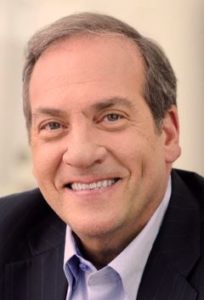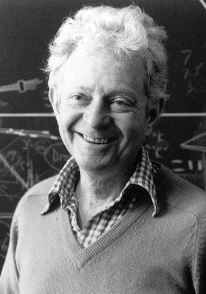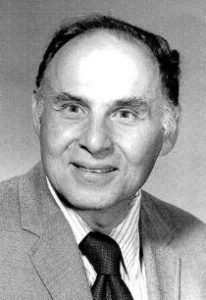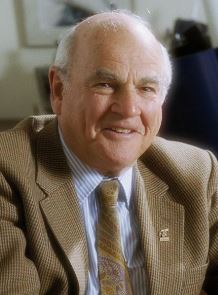In Memory of the Man Who Helped A Million People a Year

Rabbi Yechiel Eckstein
Yechiel Eckstein (1951-2019) was born in Massachusetts and raised in Canada, where his father served as a rabbi in Ottawa. Eckstein studied at Yeshiva University, starting with its high school program, and all the way through to earning his Master’s and his rabbinic ordination. He also held a Ph.D from Columbia University. After several years working with the Anti-Defamation League, Rabbi Eckstein founded the Holyland Fellowship of Christians and Jews in 1983. The main aim of this organization was to raise funds to support impoverished Jews all over the world, especially in Israel and the Soviet Union. The organization also promoted and funded aliyah, took care of Holocaust survivors, and supported the IDF’s lone soldiers. Originally, nearly all of his donors were Jewish. However, within a decade he had raised a huge amount of support from American Christians. The organization, now known as the International Fellowship of Christians and Jews (IFCJ) would go on to raise over $1.6 billion to help needy Jews in 58 countries. By 2003, it was the second largest charity operating in Israel, and some estimate it is the largest humanitarian organization in Israel today. In 2010, Eckstein was ranked among the Top 50 Most Influential Rabbis in America, and a few years later among the Top 50 Most Influential Jews in the world. IFCJ currently provides aid to over one million people each year, and has a base of 175 million donors. Rabbi Eckstein was known to be at the front lines of the work himself. He was an avid musician, and would often take his guitar with him on trips to play for kids and the elderly in camps and nursing homes. (In fact, he was once part of a Jewish band, and even recorded four albums of Hasidic music.) Eckstein was beloved by all those whom he met and assisted. It wasn’t only Jews who benefited from his work. Eckstein and the IFCJ also helped Arab Christians fleeing war-torn countries like Iraq, and supported Israel’s Christian minorities. He traveled to China to fight for the release of imprisoned pastors. He has been credited with being a major force in improving Jewish-Christian relations. He is also the author of eleven books, and his radio program had over 23 million listeners globally. Sadly, Rabbi Eckstein unexpectedly passed away last week from a heart attack. Russia’s chief rabbi, Berel Lazar, who worked closely with Eckstein, said of him that “He really cared for every single Jew. He had a special warmth, a warm heart, a special ability to feel someone else’s plight… We could have a discussion about a particular story, and he would break down crying. He wasn’t faking; that was the secret to his success—he really cared.”
Words of the Week
Where there is a soul, there cannot be a clock.
– Rabbi Menachem Mendel of Kotzk, the Kotzker Rebbe



